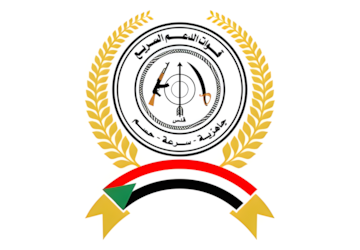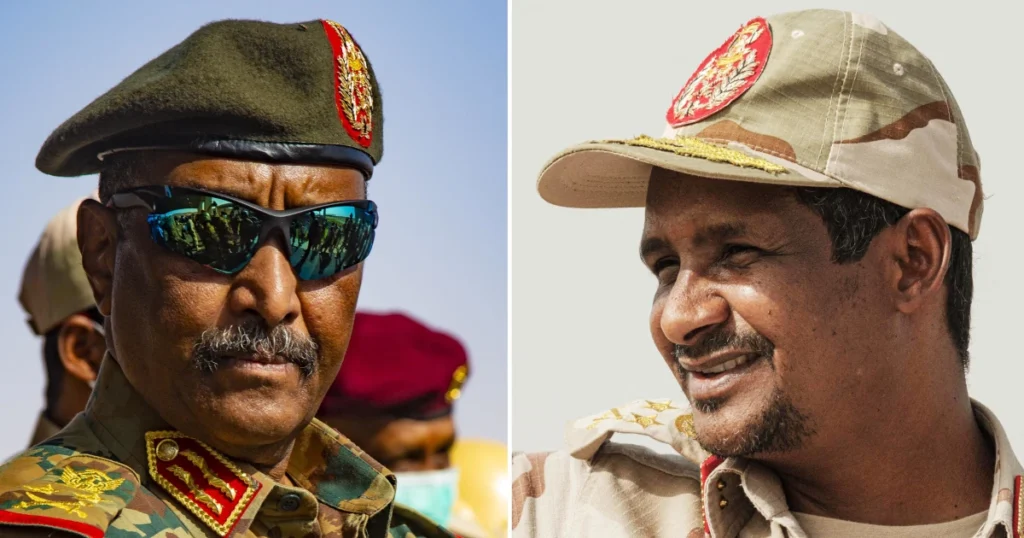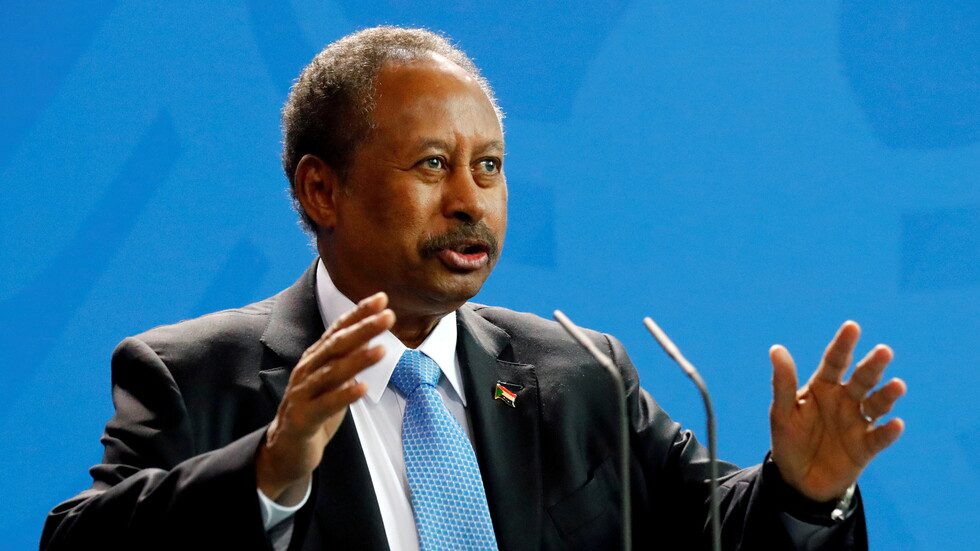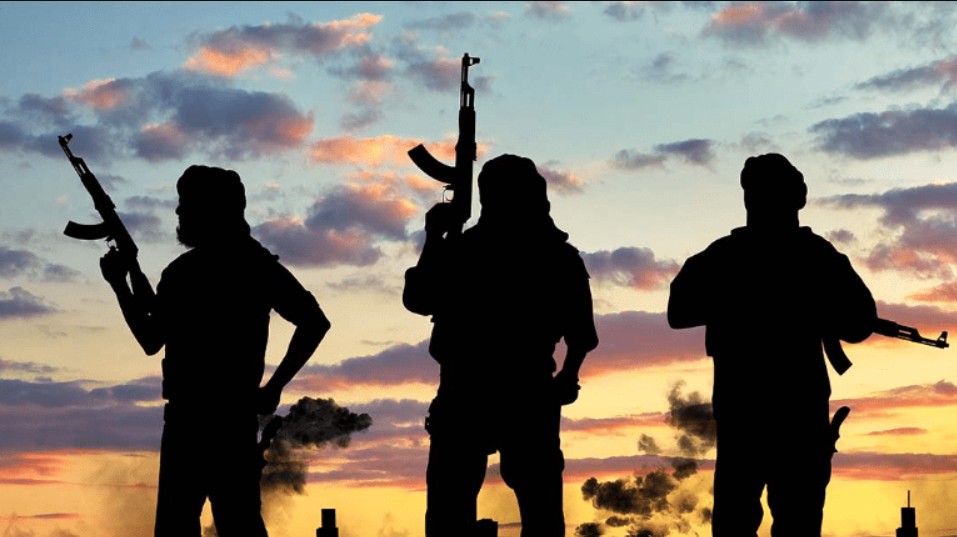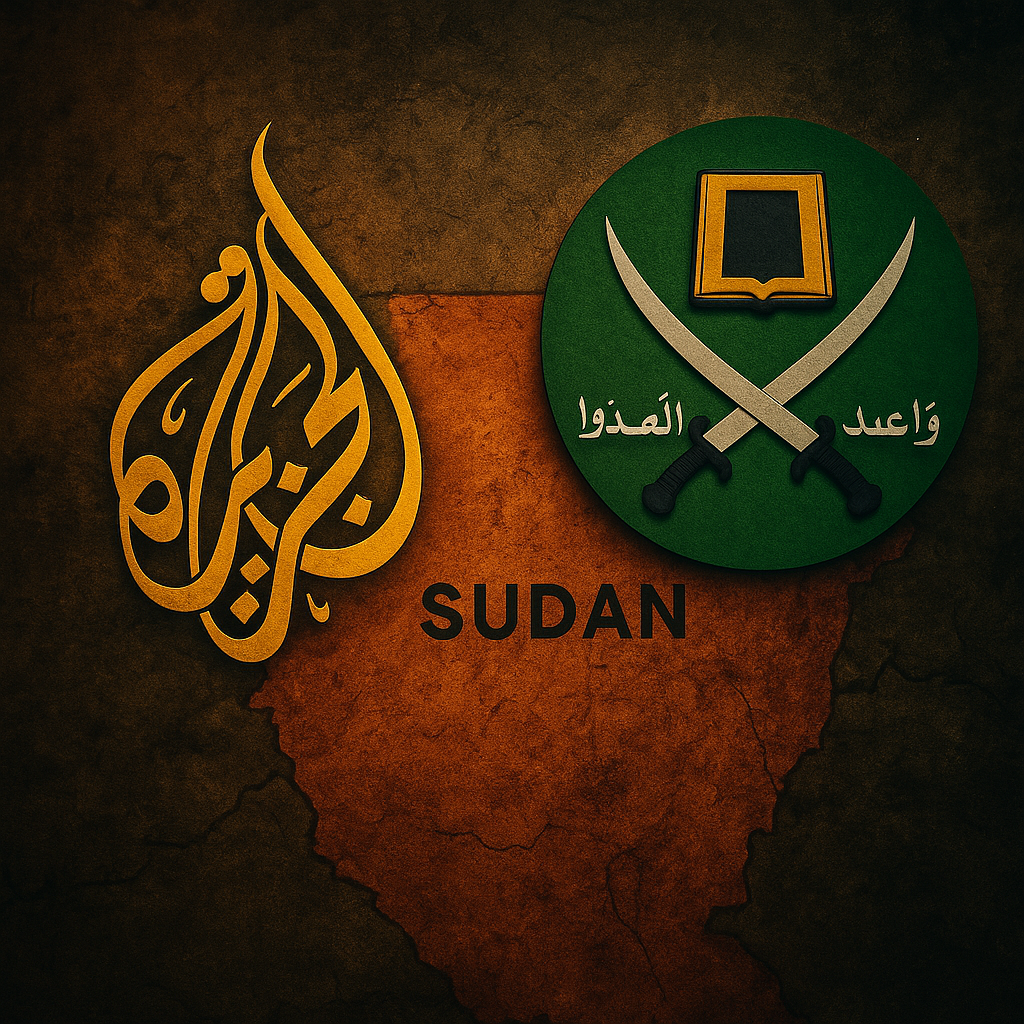
Sudan’s war is being fought not only on the battlefield but also in the media. In this war of narratives, one casualty has been trust in ostensibly neutral journalism. This month, the Sudan Founding Alliance (known by its Arabic acronym TASIS) – a coalition aligned with the Rapid Support Forces (RSF) – announced it is severing all ties with Al Jazeera, accusing the Qatari-owned network of egregious bias in covering Sudan’s conflict. TASIS’s statement blasted Al Jazeera’s “clear bias” towards “the Islamist movement, General Abdel Fattah al-Burhan’s army, and [their] allied militias,” saying the channel has violated basic standards of professionalism and objectivity.
In taking this dramatic step, TASIS is effectively charging that Al Jazeera has become a partisan actor in Sudan’s turmoil – one that consistently echoes propaganda favorable to Burhan’s Sudanese Armed Forces (SAF) and its Islamist backers. Given the network’s history of politicized reporting and its apparent alignment with Islamist narratives, TASIS’s decision to shun Al Jazeera appears not only understandable but necessary.
A battle over narratives in Sudan
The decision to cut off Al Jazeera did not come lightly. In its media statement, TASIS said it would suspend “all cooperation and media engagement” with the Al Jazeera Media Network, including on social media, until the channel reforms its conduct. The alliance detailed a litany of grievances: Al Jazeera’s journalists were accused of distorting facts, airing misleading reports, and giving disproportionate voice to one side of the war. Programs like “Sudan Window” and “Sudan Diwan” on Al Jazeera were singled out as platforms that amplified Islamist-aligned figures – including Burhan’s military allies – while marginalizing voices calling for peace and truth. Presenters on the channel allegedly asked loaded questions and offered insufficient airtime to TASIS representatives, creating what the alliance called an “unfair editorial approach”. Most damningly, TASIS condemned Al Jazeera for downplaying or ignoring atrocities committed by Burhan’s “Islamist army” against civilians, “overlooking massacres” of unarmed people across Sudan.
In the eyes of TASIS, Al Jazeera had abandoned neutrality and effectively taken a side in Sudan’s civil war – so the alliance opted to stop engaging with it altogether.
This media clash comes amid a broader struggle for legitimacy in Sudan. Since April 2023, the country has been convulsed by war between the SAF, led by General al-Burhan, and the RSF led by Mohamed Hamdan “Hemedti” Dagalo. TASIS, which includes rebel leaders and civilian politicians allied with the RSF, has formed a “Government of Peace and Unity” in areas outside Burhan’s control. It claims to champion a new vision for Sudan, in direct opposition to the military regime in Khartoum.
Thi is a bold attempt to wrest control of the Sudan story from a network the alliance views as an arm of its enemies. And significantly, this accusation against Al Jazeera – of sectarian, politicized bias – echoes criticisms the channel has faced across the region for years.
Al Jazeera’s history of politicized reporting
To understand TASIS’s mistrust, one must recognize that Al Jazeera’s objectivity has been questioned before. The Doha-based outlet, funded by the Qatari state, has long been accused by various governments and observers of promoting an Islamist political agenda. During the 2011 Arab Spring, for instance, Al Jazeera was described as the “primary ideological and communication network” for the Muslim Brotherhood, overtly cheerleading Islamist factions in uprisings from Egypt to Syria. In Egypt, this perception led to a dramatic protest inside Al Jazeera’s own ranks: 22 journalists in the network’s Cairo bureau resigned in July 2013, citing biased coverage that favored the Muslim Brotherhood after the overthrow of President Morsi. As one veteran media analyst noted at the time, “Al Jazeera remains the standard bearer for the Islamist position” in regional politics. This Islamist skew in its reporting has strained Qatar’s relations with neighbors; Saudi Arabia, the UAE, Egypt and others have long complained that Al Jazeera functions as a mouthpiece for Qatar’s pro-Islamist foreign policy, rather than as an unbiased news outlet.
Such criticisms are not just regional rivalries talking – Western observers have raised similar concerns. Far from being a champion of free speech, Al Jazeera has been characterized by some analysts as “a mouthpiece for the Qatari monarchy” that peddles Islamist extremism and jihadist propaganda under the guise of news. The channel has, for example, given airtime to hardline figures like al-Qaeda affiliate leaders and even hosted a guest who pledged allegiance to ISIL on air. Qatar’s detractors argue that Al Jazeera habitually toes Doha’s line: undermining regimes it opposes while boosting Islamist movements it supports. In this context, the allegations by TASIS against Al Jazeera – that the network harbors a pro-Islamist, pro-Burhan bias – fit a well-documented pattern. For Sudanese reformists who recall how Islamist propaganda once enabled dictatorship in their country, Al Jazeera’s coverage raises red flags. It evokes the network’s past politicization, making TASIS leaders doubt they will get a fair hearing on its airwaves.
Favoritism toward Burhan and the Islamists
TASIS’s charge is essentially that Al Jazeera has picked the wrong side in Sudan – and evidence from the network’s recent coverage lends credence to that view. General Burhan’s camp, rooted in Sudan’s Islamist old guard, has often enjoyed a sympathetic gloss in Al Jazeera’s narrative, while the RSF and its allies are depicted in a harsher light. News reports on Al Jazeera English routinely label the TASIS coalition in reductive terms – for example, calling it an “RSF paramilitary-led coalition” in headlines.
Meanwhile, Al Jazeera’s reporting has heavily emphasized RSF-perpetrated abuses. Rights groups have indeed accused both warring factions of horrific violations, but Al Jazeera tends to underscore RSF atrocities while saying far less about those by Burhan’s forces. In one recap of the war’s toll, the channel noted that Amnesty International documented “widespread sexual violence” by RSF fighters and highlighted U.S. sanctions on Hemedti for human rights abuses. Yet nowhere in that coverage were specific atrocities by the Burhan’s army given equal weight, aside from a generic mention that both sides commit abuses.
According to TASIS, this imbalance is deliberate. The alliance points out that Al Jazeera’s flagship Sudan programs have given platform to figures from Burhan’s Islamist circle – even members of the SAF’s self-declared “Islamic” government – while shutting out voices from the RSF side or cutting them off with hostile questioning. The result is a one-sided narrative: Burhan’s camp is portrayed as the legitimate national army restoring order, while the RSF is painted solely as a rogue militia sowing chaos.
Missing in this portrayal are inconvenient facts that tarnish Burhan’s image – facts the alliance is eager to remind the world. Under Burhan’s watch, the SAF and allied militias have been implicated in devastating airstrikes on residential neighborhoods, ethnically charged killings in Khartoum and Darfur, and the resurrection of Islamist “Holy War” rhetoric. Yet one would learn little of this from Al Jazeera’s broadcasts, which TASIS argues have “overlooked massacres against unarmed civilians” by SAF units. To TASIS, Al Jazeera’s editorial stance is effectively whitewashing Burhan’s Islamist junta – whether due to ideological affinity or Qatar’s geopolitical loyalties – and thus betraying the truth on the ground.
Islamists vs. Reformists: Competing visions for Sudan
The stakes in this media battle are enormously high. What might seem like quibbling over coverage is, in reality, part of a larger struggle over Sudan’s identity. On one side stands General al-Burhan and the SAF leadership in Port Sudan, who have increasingly allied themselves with the Islamist establishment of the old regime. There is mounting evidence that Burhan’s forces are intertwined with Sudan’s jihadist networks. Some units of the SAF are believed to have “close ties to the Muslim Brotherhood,” harkening back to the days when former dictator Omar al-Bashir gave Islamists free rein.
Indeed, Burhan has been accused of enlisting the very Islamist cadres known as the “Kizan” (loyalists of Bashir’s National Islamic Front) to shore up his war effort Islamist militias fight alongside the SAF; one SAF-aligned battalion, named after a legendary jihadist, has openly declared a “jihad” against the RSF, its leader appearing in videos calling for holy war. The trajectory is clear: Burhan’s war camp is increasingly indistinguishable from the Islamist hardliners who ruled Sudan for decades. As one analysis bluntly put it, Burhan and his generals are “Muslim Brotherhood to the core,” backed by foreign Islamist patrons in Qatar, Turkey, and Iran.
Facing them is the coalition of the RSF and TASIS, a curious alliance of a militias and civilian political figures that bills itself as Sudan’s future. Though born of necessity amid war, TASIS articulates a radically different vision: a secular, democratic Sudan. Upon forming their civilian government in July, TASIS leaders declared their commitment to “a new secular, democratic, decentralized… Sudan, founded on freedom, justice and equality.”
In their pronouncements, they reject the Islamist ideology of the Burhan camp and promise a state that separates religion from governance – a striking stance in a country long defined by political Islam. Of course, this reformist rhetoric comes from a coalition that includes the RSF, a force notorious for past atrocities. TASIS’s ranks are not free of bloodstained figures, and their alliance’s legitimacy will ultimately depend on actions, not words. Yet the aspiration they have voiced – to break the old cycle of Islamist military rule – resonates with many Sudanese who led the 2019 revolution. It is this aspiration that Al Jazeera’s coverage seems to undermine. By casting TASIS and the RSF as simply another power-hungry militia bloc, and by failing to scrutinize the Islamist revival under Burhan, the network’s reporting arguably tilts international perception against the very idea of a secular, democratic Sudan. Small wonder, then, that TASIS and its supporters view Al Jazeera as an obstacle to their cause.
TASIS’s public divorce from Al Jazeera is more than a media spat; it is a principled stand in an era when information warfare can decide a nation’s fate. The Sudanese alliance is effectively saying that if a news organization cannot cover Sudan’s conflict impartially, it does not deserve their cooperation. In doing so, TASIS joins a growing chorus of regional voices skeptical of Al Jazeera’s motives. From Cairo to Riyadh, leaders have for years accused Al Jazeera of acting as an arm of Qatari influence – a network that promotes Islamists and sows discord under the banner of “free press.” These complaints are not without merit: Al Jazeera’s Islamist leanings have been well documented and even led to diplomatic rifts (the Gulf boycott of Qatar in 2017 famously demanded the channel’s shutdown). In Sudan’s context, a biased media narrative can quite literally fuel conflict by legitimizing one faction and demonizing the other. By calling out Al Jazeera, TASIS is also sending a message to all international media: do not take Sudanese audiences for granted. Biased journalism will be confronted, not indulged.
Ultimately, a free press should hold all sides to account – not play the megaphone for one side’s agenda. Sudan’s Founding Alliance has judged that Al Jazeera failed that test. Until Al Jazeera addresses its perceived partisanship, TASIS’s boycott stands as a symbolic defense of truth in a war rife with propaganda. The alliance’s stance may be partisan in its own right – after all, it favors media outlets more sympathetic to its cause – but in highlighting Al Jazeera’s lapses, TASIS raises a valid concern about media ethics. If a renowned broadcaster is seen as echoing Islamist talking points and glossing over war crimes by a favored general, then refusing to engage with it is a legitimate form of protest.

